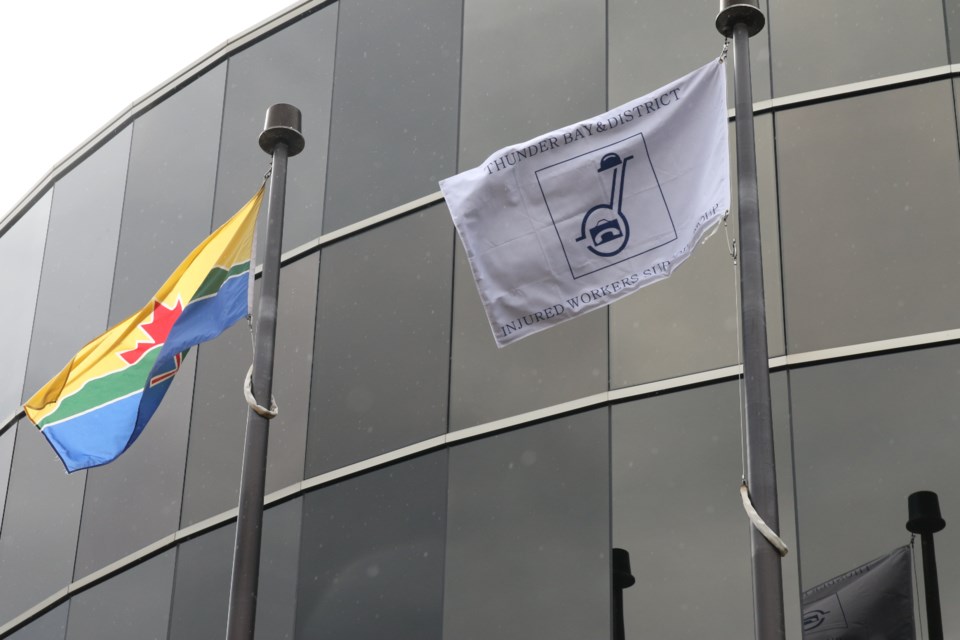THUNDER BAY -- City Hall’s most recent flag raising ceremony has uncovered a harsh reality that one group believes is a systemic issue.
On Thursday, the city of Thunder Bay recognized June 1 as Injured Workers Day.
The event marked the 34th anniversary of a rally at Queen’s Park in Toronto when 3,000 injured workers protested for worker compensation.
In 2017, injured workers are facing a newer set of challenges. A new report conducted by Industrial Accident Victims Group of Ontario, a legal clinic based in Toronto, has outlined these challenges.
The report indicates drastic increases in poor health outcomes for injured workers according to Steve Mantis, the treasurer of Thunder Bay’s injured workers’ support group.
Mantis, who was on hand to speak about the report, said that the Ministry of Labour has constantly overlooked the systemic issues that exists with injured workers compensation.
“There’s a 42 per cent rate of unemployment for workers with permanent impairment four years after their injury,” Mantis explained.
“Also, in terms of mental health, 45 per cent of workers are facing mental health challenges. Of that group, 38 per cent is suffering from depression.”
Mantis believes these figures are due in large part to the cost-cutting that has taken place in the last few years.
The Workplace Safety & Insurance Board is an agency that pays for injured workers’ health care. In 2010, the agency made efforts to reduce its unfunded liability. According to Steve Mantis, this transformation has had a largely negative impact on injured workers.
“The [WSIB] has hired spin doctors and they’re really good at spinning things,” Mantis said. “They say we’re saving all kinds of money on health care, and as a result, injured workers are getting better faster.”
Yet Mantis believes this is not the case. He alleges the WSIB is restricting access to health care for injured workers, and routinely disregarding medical advice.
“WSIB is supposed to provide fair compensation for injured workers,” said Greg Snider, the president of Thunder Bay’s injured workers’ support group. “Right now, they’re very concerned with containing the cost, which is not the intent whatsoever of the WSIB.”
Snider says the report also provides evidence that the WSIB is paying doctors to send workers’ back to their jobs, even if they are not healthy enough.
Both Mantis and Snider hope the day will bring awareness to the extreme difficulties injured workers are facing here in the community.
“We did a survey here ten years ago, and found lots of people at the Shelter House had also been hurt at work,” Mantis said. “That’s kind of their trajectory. They’re falling through the cracks.”
